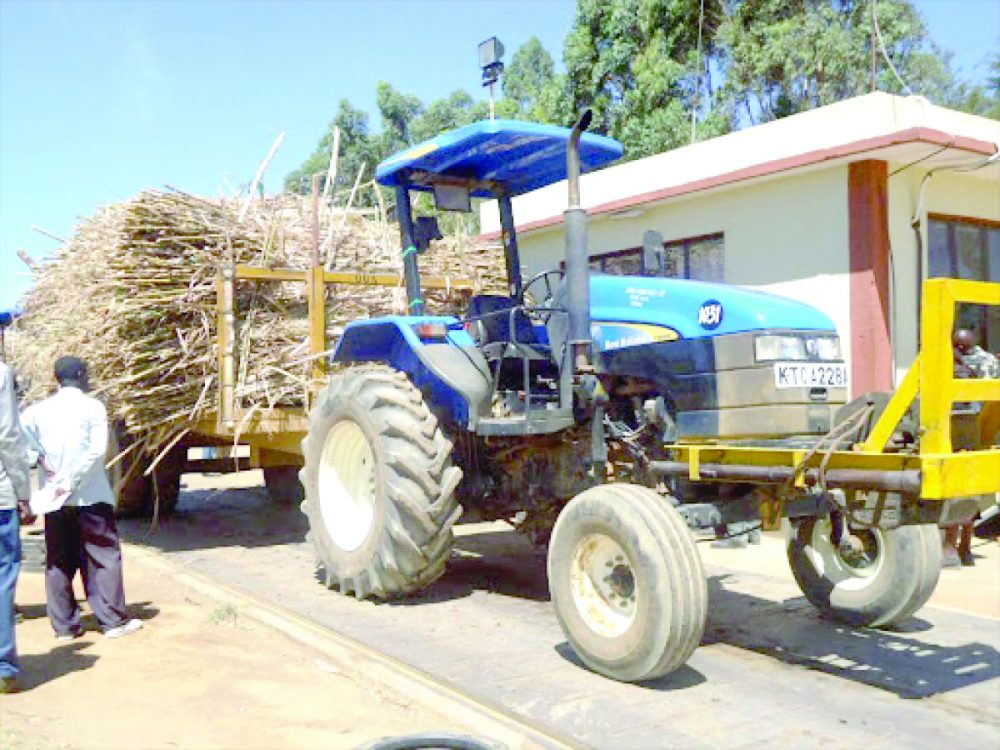Why Kenyan sugar prices rise, likely to keep soaring
By Noel.Wandera, July 13, 2023Shortage of sugar in the local and international markets is exerting more inflationary pressure on Kenyan households by spiking the cost of the commodity.
The situation is worsened by reduced manufacturing by both local and top global sugar producers, especially countries like India and Pakistan, which are responsible for 25 per cent of global sugar production. With the shilling having hit an all-time low against the dollar to trade at Sh141, and with a dip in local production, this means Kenya continues to import more sugar at a higher cost.
The fact that the two top sugar-producing countries are currently experiencing shortages due to poor weather and subsequent export restrictions so as to satisfy local domestic demand sums up the pain for importing countries and partly explains an 11-year surge in global sugar prices.
Kenya, which is a net importer of foodstuff including sugar spent Sh23.92 billion to bring the sweetener home, mostly from the Common Market for Eastern and Southern Africa (Comesa) region due to trade agreements.
Table sugar
Sugar Directorate data shows Kenya imported 21,887 tonnes of table sugar in May 2023, out of which 68 per cent came from Uganda, while shipment from India declined to 24 per cent. Other sources included Zambia (9 per cent) with less than one per cent from Germany.
The data indicates that Kenya’s weekly optimal stock of sugar in 2023 dropped by 80 per cent in May on low production by factories amid costly imports in the global market last month. The country has been recording weekly stocks of 4,000 tonnes against the required optimum of 20,000 tonnes to meet the daily requirement, the directorate states.
However, the main question at the breakfast table of most Kenyans revolves around the sugar price, since most of the consumables require a spice of sugar including tea, pastries and salads.
The pain is compounded by a new tax that allows the Kenya Revenue Authority (KRA) to collect an extra Sh5 excise tax per kilogramme of sugar and Sh42.1 per kilogramme of locally manufactured confectionery, a burden that will be passed to the consumers. “People are concerned about whether it will drop from a record high of Sh200 per kg or will it continue to rise… pushing up the inflation rate- which tracks commodity and services prices – over a year,” a report by investment banker EFG Holdings reads in part.
The investment banker further notes that local and global sugar shortages in 2023 contributed to a rise in average annual inflation from 7.6 per cent in December 2022 to 8.03 per cent in May 2023.
In January, the directorate issued a warning that Kenya could fail to secure sufficient stocks of sugar in the international market due to the high prevailing global prices and shortage of the commodity in the international markets.
In April, Kenyan millers produced 405,389 tonnes, down from 546,150 tonnes in March and 716,274 in February thereby dropping production by 36 per cent.
The report by investment bankers EFG Holdings observes that countries like India have also been diverting to ethanol rather than sugar production, worsening a global sugar crisis. “It is targeting to have a 20 per cent ethanol-gasoline blend for its vehicles use, thus reducing the reliance on petrol,” EFG Holdings said in its analysis.
An April 2023 report by the International Sugar Organisation said the white sugar price index averaged $675.69 (Sh95,339.86) per tonne, up from $586.92 (Sh82,814.41) in March and $560.46 (Sh79,080.91) in February. Kenya’s sugar shortage comes five years after a food crisis, especially maize shortages, that drove inflation to record highs of 11 per cent. With local supply to retailers having been hampered by poor weather and obsolete machinery leading to millers producing less, the price of a tonne of sugar has increased to Sh5,250 from Sh4,584.
High prices
It also forced the government to step in and issue import permits for the shipping of 100,000 tonnes of zero-rated sugar to cushion Kenyans from the high prices.
However, this has come at a high cost, with sugar being part of the commodities being sourced outside the Common Market for Eastern and Southern Africa.
It is important to note that Kenya was granted a nine-month extension to limits on sugar imports from the Comesa trade bloc to allow the country complete decades-long reforms, to supposedly spur the industry’s competitiveness.
